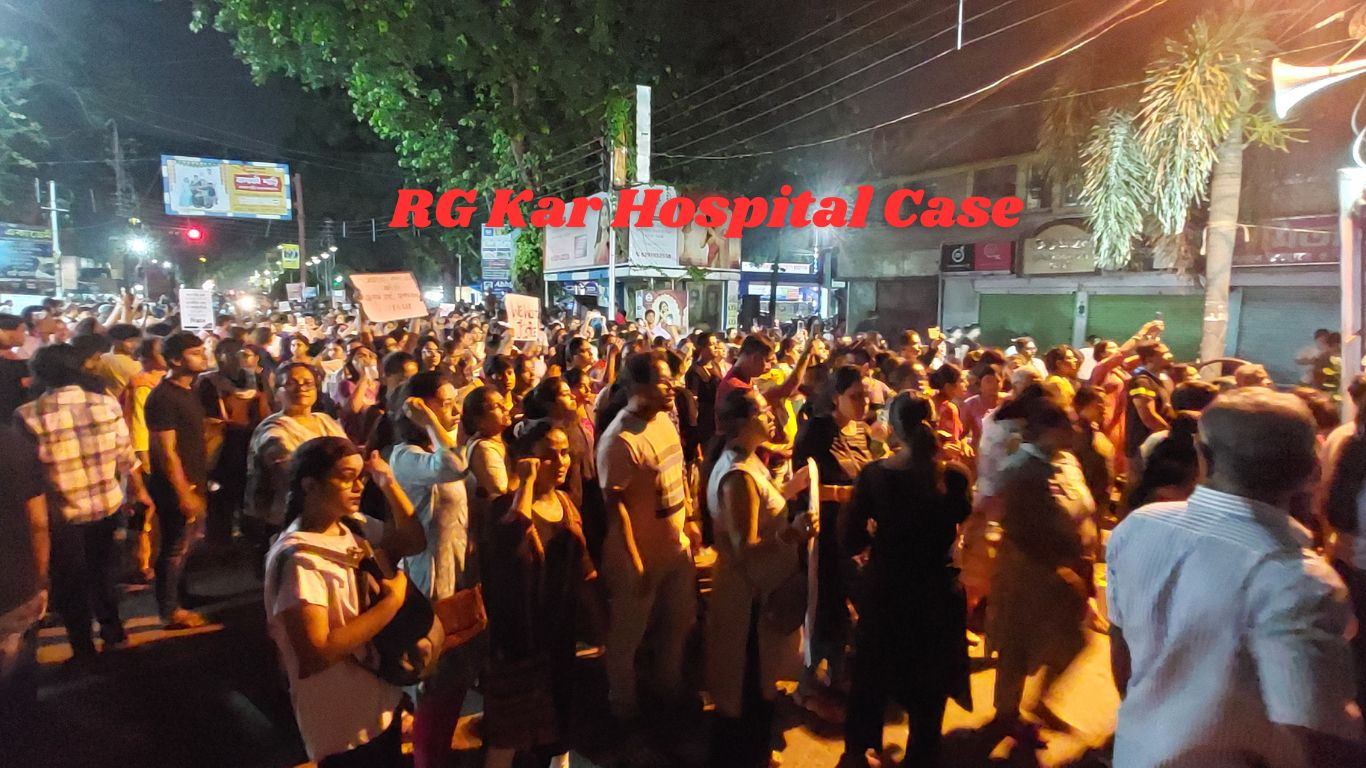Introduction
A heart-wrenching tragedy has unfolded in the medical community as Sanjay Roy, a suspect in the rape and murder of a trainee doctor at RG Kar Hospital, has been sentenced to life imprisonment. Additionally, a fine of ₹50,000 was imposed on him. This devastating incident has sparked public outrage and raised serious concerns regarding the safety of medical professionals in their workplaces. This article takes a deep dive into the details surrounding the crime, the identity of the accused, the investigation, and the broader implications for medical institutions across India.
The Disturbing Incident at RG Kar Hospital
RG Kar Hospital, one of Kolkata’s oldest and most respected medical institutions, became the scene of a horrific crime. The tragedy took place during the early morning hours when a young trainee doctor, just starting her medical career, became the victim of a brutal assault and murder by Sanjay Roy, a hospital employee.
The victim, who was full of promise and dedication to her profession, was found dead in a remote area of the hospital. Forensic investigations confirmed the assault, and it quickly became clear that the act was both premeditated and violent.
Who is Sanjay Roy?
Sanjay Roy, an employee at RG Kar Hospital, held a non-medical position, yet he had access to several parts of the facility. Despite his lack of formal medical training, Roy exploited his position to carry out the horrific crime.
Roy had no prior criminal record, which made this act even more shocking. However, his behavior leading up to the crime raised suspicions, pointing to the possibility that he had planned the act.
The Crime Committed by Sanjay Roy
The crime occurred when the hospital was relatively quiet, with many staff members off duty. Roy lured the victim to a secluded part of the hospital, where he sexually assaulted and murdered her.
After the attack, he attempted to conceal his actions, but the evidence was clear. Investigators soon pieced together the details using security footage, DNA analysis, and witness statements, all of which pointed toward Roy as the perpetrator.
The Victim: A Talented and Promising Doctor
The victim was a young woman in her twenties, new to her medical career. She worked as a trainee at RG Kar Hospital, excited about her future in the healthcare system. Colleagues remember her as diligent, compassionate, and committed to providing the best care possible to patients.
Her tragic death has left an irreplaceable void in the medical community, and her colleagues, friends, and family are devastated by her loss. The promising future she had ahead of her was cruelly taken away.
Investigation and Arrest
Following the discovery of the victim’s body, hospital authorities quickly contacted the police, setting off a thorough investigation. The forensic team’s work was instrumental in gathering crucial evidence. CCTV footage was vital in tracing Roy’s movements around the hospital before the crime.
Roy was arrested shortly after, though he initially denied any involvement in the crime. However, the mounting evidence—including his suspicious behavior, DNA matches, and security footage—left no doubt about his role. He was charged with both rape and murder.
Crucial Witnesses and Evidence
The investigation was bolstered by testimonies from hospital staff who had noticed Roy’s strange behavior in the hours leading up to the crime. Forensic evidence, such as DNA samples, confirmed the connection between Roy and the victim.
The critical piece of evidence was the DNA match, which ultimately ensured that Roy would be convicted.
Court Proceedings
The court proceedings were closely followed by the public and media, all demanding justice for the victim. The prosecution presented a compelling case, based on strong evidence, while the defense tried to dispute the charges. But the evidence was irrefutable, and after deliberation, the court found Roy guilty of the heinous crime.
The entire courtroom felt the weight of the decision as the verdict was announced, and the victim’s family awaited justice for their beloved daughter.
The Verdict: Life Sentence and ₹50,000 Fine
Sanjay Roy was convicted of both rape and murder, and the court sentenced him to life imprisonment. Additionally, a fine of ₹50,000 was imposed, which will be given to the victim’s family. While the sentence was seen as an important step toward justice, some felt that the punishment didn’t fully reflect the severity of the crime.
For many, the verdict was a small measure of relief, but the victim’s family expressed that no amount of justice could ever replace the loss of their daughter.
Reactions to the Sentence
Reactions to the sentencing were mixed. Some people commended the court for delivering a firm punishment, while others felt the ₹50,000 fine was inadequate in light of the horrific crime. Legal experts noted that life sentences are typically the harshest punishment for such crimes, though there are ongoing calls for stricter reforms to address violence against women.
The victim’s family was relieved that some form of justice had been served but expressed that it could never undo the heartbreak they felt over their loss.
The Aftermath for RG Kar Hospital
The tragic events have had a profound impact on RG Kar Hospital, which now faces increased scrutiny regarding its safety protocols. The hospital has vowed to implement stricter security measures to ensure the safety of its staff and patients moving forward. This case has sparked national conversations about the safety of medical professionals, especially women, in their workplaces.
Reforms and Responses from the Hospital
In the wake of the crime, RG Kar Hospital has introduced several new safety measures, such as enhanced surveillance, restricted access to certain areas, and a review of staff vetting procedures. The hospital has also provided counseling services to support staff members affected by the emotional aftermath of the incident.
Hospital authorities have pledged to improve their hiring and security practices to prevent any future tragedies from occurring. These measures aim to reassure both staff and patients that the hospital is dedicated to maintaining a safe environment for everyone.
Wider Implications for Medical Institutions
The RG Kar Hospital case has sparked a larger conversation about the safety of medical professionals, especially women, in hospitals and other healthcare settings. This case has prompted hospitals across India to re-examine their security policies and take necessary steps to improve safety and protect workers.
The incident has also highlighted the need for stronger laws to safeguard women in their workplaces, particularly in the healthcare sector, where many professionals often work in vulnerable situations.
Conclusion
The tragic case of the rape and murder of a trainee doctor at RG Kar Hospital serves as a sobering reminder of the need for heightened security in healthcare environments. Although the life sentence and fine for Sanjay Roy are seen as a form of justice, the case underscores the need for reforms to better protect medical professionals—particularly women—in their workplaces.
FAQs
What happened in the RG Kar Hospital case?
Sanjay Roy, an employee at the hospital, was convicted of raping and murdering a trainee doctor. He was sentenced to life imprisonment and fined ₹50,000.
Who was Sanjay Roy, and how did he get involved?
Roy was a non-medical staff member at RG Kar Hospital. He lured the victim to a secluded area and assaulted her, leading to her death.
How did RG Kar Hospital respond to the tragedy?
The hospital has introduced enhanced security measures, including improved surveillance and better access control. They also offer counseling for affected staff.
What was the sentence given to Sanjay Roy?
Roy was sentenced to life imprisonment and fined ₹50,000, which will be given to the victim’s family as compensation.
What impact has the case had on medical institutions?
The case has led hospitals to review and strengthen their security protocols to protect medical professionals, particularly women, in their workplaces.










